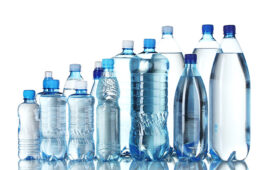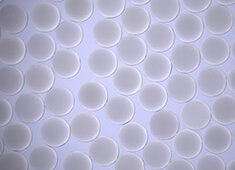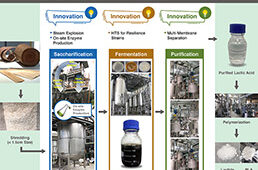Defying
thousands of years of conventional wisdom, scientists are reporting
that it is possible for water to float on oil, a discovery they say has
important potential applications in cleaning up oil spills that threaten
seashores and fisheries. Their report appears in the American Chemistry Society’s journal Langmuir.
Chi
M. Phan and colleagues point out that the ancient Greek philosopher
Aristotle made an early attempt to explain flotation around 350 B.C.
Today, most people know that less dense liquids float on more dense
liquids. So crude oil with a density of about 58 pounds per cubic foot
floats on sea water, which has a density of 64 pounds per cubic foot—and
not vice-versa. Correct? Phan’s team decided to test that notion with
computer models and in the lab.
They
report that in certain cases, the conventional wisdom is wrong. By
adding tiny amounts of water to a floating droplet of oil, they found
that the ability of water drops to float at the surface of an oil bath
depends on both the size of the droplet and the type of oil. Commercial
vegetable oil has enough surface tension—the force between liquid
molecules that allows beads of water to form or insects to walk on
water—at its interfaces with air and water to support a droplet’s
weight, while pure mineral oils do not. At the same time, they found
that vegetable oil could not support drops bigger than about one one
hundredth of a cubic inch. The authors suggest the new knowledge could
help clean up oil spills, where water-borne, oil-eating microbes will
mix more easily into the oil if suspended in the tiny droplets they
describe. “This result can lead to a new and advanced mechanism in
processing oil/water mixtures, such as biodegrading process of unwanted
oils, including vegetable oils, sand oil tailings and oil spillages,”
the authors said.
Source: American Chemical Society




